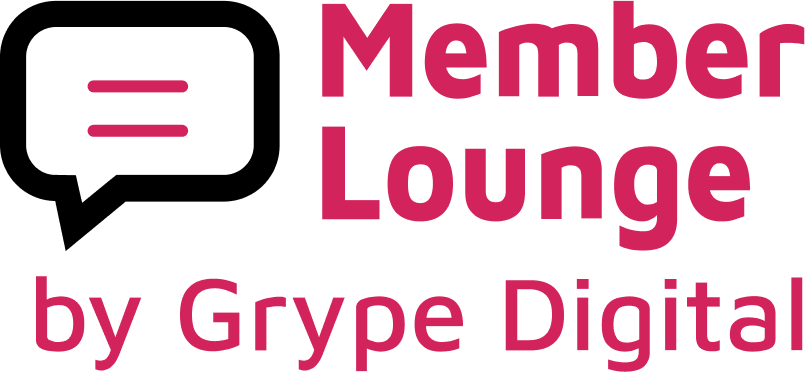In today’s day and age, most people whose work overlaps with website design or development are likely familiar with WordPress. But does WordPress’s ubiquity make it the best choice?
While WordPress is the most popular CMS in the world and is the most user-friendly, in our experience working with associations, Drupal is the CMS that we recommend to all our clients because of the complex needs and sensitive data used by associations.
Keep reading to learn more about how Drupal differs from WordPress and why we feel Drupal is the better fit for associations to create a high-performing, long-lasting, and secure website for your complex and sensitive data.
What WordPress and Drupal Have in Common
Both WordPress and Drupal are content management systems (CMS). They are both open-source technologies that help you design and manage the content on your website.
WordPress and Drupal are both head and shoulders above template CMS options as you can create a completely custom experience for your audience. With the many building-block template options out there, your ability to design customized user journeys and user interfaces is limited. These limitations impact user engagement, which impacts member retention.
When your content and operations are straightforward, a template solution may be a good fit for your needs. For most associations, the combination of membership options, member benefits and the goal to scale to new members requires a sophisticated approach.
Extending WordPress and Drupal Sites
Both WordPress and Drupal sites can be extended with add-ons. WordPress called them plugins while Drupal called them modules. Aesthetic add-ons are called themes by both.
WordPress has over 58,932 free plugins and over 8,544 free themes, plus thousands more premium plugins and themes.
Drupal has over 47,389 modules and 2,964 themes, however only 10,000+ modules and 250+ themes are compatible with the most recent version of Drupal, Drupal 8.
The extensive plugin world affiliated with WordPress appears to be appealing, but it lends itself to problems down the line in terms of securing your websites from hackers and avoiding your site breaking when plugins are modified.
Why WordPress Is So Popular
WordPress is the world’s most popular CMS and is home to 40% of all websites. Many big players use WordPress, from government sites to the most popular brands in the world. Here are the most popular reasons why WordPress is the number one player in the CMS space:
1. Easy-to-use Interface
The back end of WordPress is less intimidating for people outside the developer world. It’s clearly organized and labeled, and easy to build with.
2. Wide Functionality
WordPress has an extensive list of plugins that create added functionality without the need for custom development.
3. Accessible Support
Because so many people are using WordPress, finding support is easy.
4. Lower Up-Front Costs
The upfront costs of setting up a WordPress website are lower because it comes out of the box at a more developed stage and finding developers who support WordPress is easy. You could create a website in a matter of hours. The complex audiences and member benefits of Associations would make this more than an afternoon’s worth of work.
Drupal
There are all notable perks for WordPress, but for Associations, we still recommend Drupal. Although Drupal predates WordPress, it powers just 2.5% of all websites with a 4.6% share of the CMS market.
Why Associations Choose Drupal
There are few entities as complex as an association; you have many different stakeholders (prospects, new members, veteran members, donors, board members, the public, partners, etc). You have varying content for each of these stakeholders. Different tiers of membership come with unique benefits. Additionally, you run events and strive to keep up with the leads generated by your site. It’s all very complicated and you need a reliable website that can help your team stay organized, automate as much as possible, and keep private data secure.
Here are some of the top reasons why people love Drupal:
1. Create Custom Content Types & Views
Drupal’s custom content types offer more flexibility to create and organize different types of content. WordPress does offer custom post types, but Drupal can better organize different types of content for better reporting.
2. Create Unlimited User Permissions
Drupal allows you to create as many new roles with customized permissions as you like. WordPress comes with only five basic user roles. For large associations with different membership tiers and different staffing departments that only need to see certain data, this is a better option.
3. Multilingual
Multilingual functionality was built into Drupal. This is great for websites that support different languages, or who have members or staff who work in different languages. WordPress sites need a third-party plugin to support other languages.
4. Sophisticated Taxonomy
Drupal’s taxonomy system is more flexible than WordPress. This means that you can drill down into your content and sort it into specific categories more easily than with WordPress.
5. Inline Editing
For simple layouts, Drupal provides the ability to edit content while “looking at” your site.
6. Customizable Layouts
The built-in Drupal system for managing “blocks” of content for sidebars, footers, and other areas allows for detailed control over which pages and contexts in which the content appears. Additionally, it makes it easier to show the same, editable piece of content site-wide.
Drupal for Associations
“Faster” and “cheaper” are some of our favorite words, too. But as software providers, we want to set up our clients for success. Those big governments and companies that use WordPress are huge entities, but what is the goal of their websites?
Their websites are surprisingly quite simple. They are not collecting data from their users and members, they are not collecting donations, and they are not running events or trying to increase engagement and interaction on their website. For associations, getting members to engage and develop a long-term relationship with you, as well as data collection and event registration, are key goals of associations that make Drupal a better fit.
What Can I Expect with Drupal?
While some Drupal themes do exist, your average Drupal website will require a custom-coded design. You will need a graphic designer and a developer to make your website presentable. The same goes for the back-end view; it comes with every little out-of-the-box so you’ll have to work with your developers to add the fields and text you need to maintain your web content.
What about long-term costs?
Although the upfront development costs of Drupal are higher, your maintenance costs for Drupal are less. Drupal’s code is kept very clean with minimal updates so it is rare that your site will break. Updates are less frequent and therefore less expensive.
Are both Equally Safe and Secure?
Drupal and WordPress sites are both safe, however, the huge amount of third-party plugins and themes offered by WordPress make it vulnerable to frequent breaks and hackers. 74% of hacked websites are WordPress sites, which is greater than its 60% market share. Drupal on the other hand only accounts for 2% of hacked sites, which is below its market share of 4.7%. Since associations work with personal membership information and baking information, Drupal is the safer choice.
Drupal is more transparent about its security than WordPress and publishes detailed security reports regularly. One of Drupal’s top features is its enterprise-level security and ability to provide in-depth security reports. In fact, this is a driving factor for why government institutions and other large, security-conscious organizations often use Drupal.
WordPress or Drupal: Which Is Better for Your Association?
There is no right answer because both have their perks and both have their limitations.
The better question would be to figure out the goals of your web development project and pick the best software solution that will help you meet your goals.
Want to Talk it Out?
Set up a call with us to talk about your association’s website needs.





